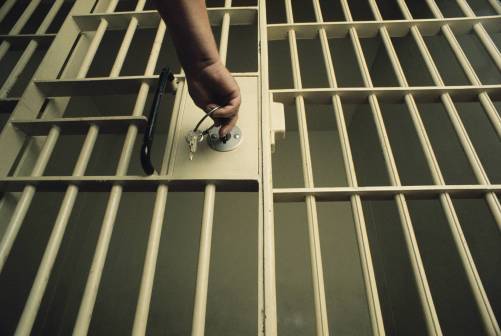A year on, White House pushes police open data partnerships

The White House is marking the one-year anniversary of its push to get police around the country to open up their data — trumpeting its work so far with 53 departments, and partnering with the private sector to get more on board.
“We fully recognize that open data is not a panacea, but it’s very clear to us that it’s an important initial step that every agency should take,” Roy Austin, deputy assistant to the president for urban affairs, justice and opportunity in the White House Domestic Policy Council, said on a press call Thursday.
President Obama launched the “Police Open Data Initiative” last May after his “Task Force on 21st Century Policing” stressed the value of encouraging departments to collect and share data on hot-button issues, like officer-involved shootings or traffic stops. Since then, the administration has encouraged departments in all corners of the country to participate, highlighting new additions like police departments in New York City and San Francisco.
But while the White House is pleased with this progress, it’s also hoping that new partnerships can help make it easier for more agencies to start opening up their data going forward.
Nonprofits and police groups like the Police Foundation and the International Association of Chiefs of Police are now partnering with the administration to offer training sessions for departments to spur their engagement with the initiative, and California’s Department of Justice will mirror those efforts with a workshop for all of the participating agencies in the state.
But the White House is also hoping to pull in the private sector to make the process more affordable for departments. Open data portal vendor Socrata will offer participating agencies discounts on its services to build police data websites through the rest of the year, while data conversion and integration firm Safe Software will offer departments a free, one-year license for a tool that can extract data from their systems and make it easier to upload to an open data portal.
“The lens we’re looking through on this is ‘How do we enable departments to open data sets that they already have?” said Clarence Wardell, digital services expert with the White House’s U.S. Digital Service.
Program participants like Art Acevedo, chief of police in Austin, Texas, hailed the administration’s leadership in spurring departments to get active in this open data push, and he said his officers have already started to see the benefits about being more transparent about their operations.
[Read more: White House wants open data to help local police forces]
“As a profession, we’ve not done a good job of sharing information,” Acevedo said. “The public is our greatest force multiplier, but we need to earn their trust daily. They’re smart enough to make own assessments and decisions, but the only way for them to do that is to be transparent.”
Yet White House officials are also cognizant that there’s plenty of work left to be done. After all, the 53 participating agencies may serve more than 40 million people around the country, but there are roughly 18,000 law enforcement agencies nationwide.
“Success is the best teacher, so we need a cohort of groups, and 53 is significant,” said Ron Davis, director of the Office of Community Oriented Policing Services at the Department of Justice. “Instead of a national program with such a magnitude of funding that it would be unrealistic, we’re showing the local agencies benefits of this so they can do it themselves.”
But Davis also acknowledged that standardizing all that data will be the next challenge that the administration has to confront, and Wardell expects to see movement in that area in the coming months.
“As more departments are participating, there’s a growing desire for a level of standardization,” Wardell said. “We need a conversation to discuss where standardization will move the ball forward.”
Davis wants to see more agencies join the initiative first, so that conversation can truly become a nationwide effort.
“A year from now, I think it’ll be the opposite, it’ll be 53 agencies that are not participating in this,” Davis joked.
Contact the reporter at alex.koma@statescoop.com, and follow him on Twitter @AlexKomaSNG.






